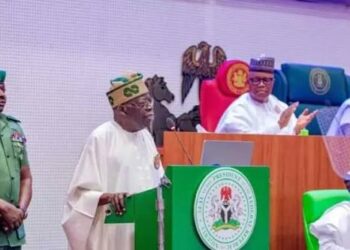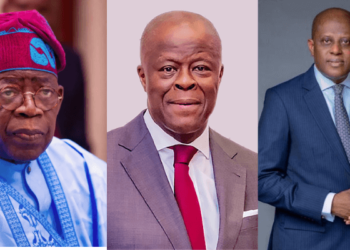
Nigerians are groaning under unbearable living conditions typified by rising prices of food items, depreciating value of Naira, higher transportation cost and general impoverishment.
Prices of staple food items such as rice, beans, yam, corn have gone beyond what an average Nigerian can purchase and still rising on daily basis, making the items assuming luxuries status.
Most Nigerians can hardly eat two square meals daily.
The value of the local currency is nosediving on daily basis and even at that, its velocity is among the upper class, leaving the masses to be “working like elephants and eating like ants”.
In the midst of the elusive naira and dollars, affluent Nigerians are flaunting their wealth brazenly while the currency dealers are having field days stockpiling it and selling it at their own determined rates.
Yet, Central Bank is looking the other ways, chasing shadows and preoccupying itself with mundane issues and micro managing farmers.
In the midst of all the challenges, the nation’s Bureau agency reports that inflation has dropped to 16.63 percent in September
According to NBS the Consumer Price Index, (CPI) which measures inflation increased by 16.63 per cent (year-on-year) in September 2021.
This is 0.38 per cent points lower than the rate recorded in August 2021 (17.01) per cent.
The decline also represents a consistent decline of inflation rate in the last seven months as increases were recorded in all COICOP divisions that yielded the Headline Index.
On a month-on-month basis, the Headline Index increased by 1.15 per cent in September 2021, this is 0.13 per cent rate higher than the rate recorded in August 2021 (1.02) per cent.
But some analysts say the monthly rituals of inflation have not been in tune with realities on ground, adding that the living conditions of most Nigerians are getting worse.
Meanwhile Senator George Sekibo on Thursday said Nigeria’s inability to come up with a sustainable exchange rate is one of the major problems confronting the country.
Commenting on the 2022 budget, the Senator representing Rivers East Senatorial District using exchange rates between 2016 and 2019 in his analogy said:
“If the exchange is N197 as it was in 2016 the budget of N16trn would have been $83bn and not $39b and in the worst case scenario if the exchange rate is N306 as it was in 2019 the budget would have been $53bn.
He further explained that”Alternatively, today N16trn is equivalent to N7trn plus if it were in 2016 and N12trn plus as is in 2019”.
“The instability of the exchange rate has been detrimental to huge trillion budget resulting to huge deficit and borrowing to sustain our economy”.
He advised that for Nigeria to survive”we must develop strong economic policy to stabilise our exchange rate.
“The instability of the exchange rate has been detrimental to huge trillion budget resulting to huge deficit and borrowing.












